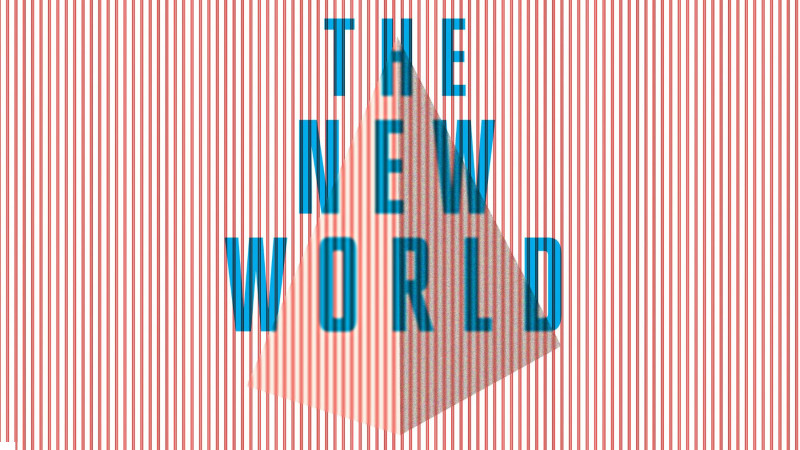You don’t have to be married to get The New World. That said, if you are married (as I am) there are certain moments in the book that might resonate in a discomforting way.
Out this month on Farrar, Straus and Giroux, The New World is written by Eli Horowitz and Chris Adrian. This combo is the literary equivalent of a two-punch knockout. Horowitz, who lives in San Francisco, was a managing editor and publisher at McSweeney’s. He edited Miranda July’s brilliant novel The First Bad Man. He co-authored the breakthrough digital novel The Silent History. And if you haven’t heard of Chris Adrian, I demand you run out and pick up a copy of The Children’s Hospital. It’s a sprawling, messy, monster of a novel. For me, it will go down in history as a book ended with me in the fetal position, bawling like a baby as my confused husband tried to soothe me.
With this kind of pedigree, I couldn’t wait to see what these two minds would devise together. The New World, like The Silent History, was conceived as a digital novella for The Atavist. I haven’t read the digital edition. In fact, I didn’t hear a peep about this book until last month when I saw that Farrar, Straus and Giroux was publishing it as a traditional paper-bound novel. This review does a good job of breaking down the experience of reading The New World in its original iteration. It’s a format that allows for a break in linear narrative structure, and one that probably served the plot of the novel well.
The story travels back and forth in time, without much worry about whether the reader knows what’s going on. At first, the willing disregard of straightforward narrative made me want to throw the book across the room. As the mother of a toddler who does most of my reading late into the night, I don’t have much patience (these days) for willful perversity.
I’m glad to have stuck with it, because by page 43, when the mother of main character Jane tells her daughter, “Only Ahab would ever sue in anger,” I was riveted.


